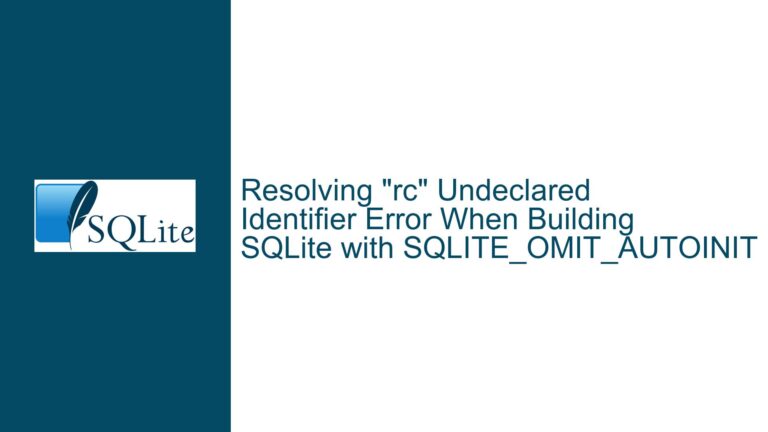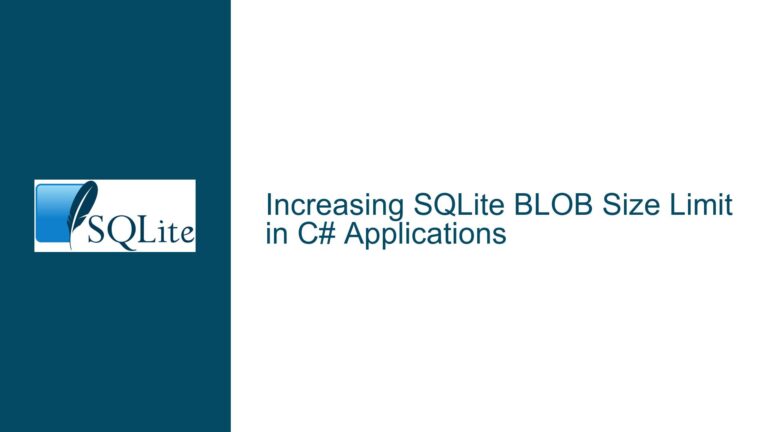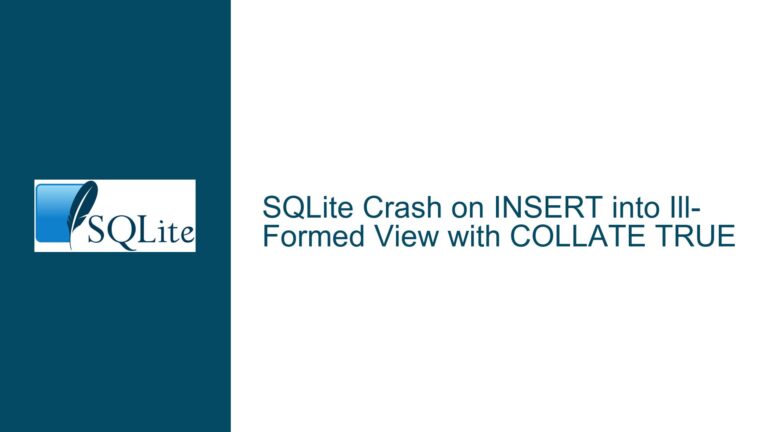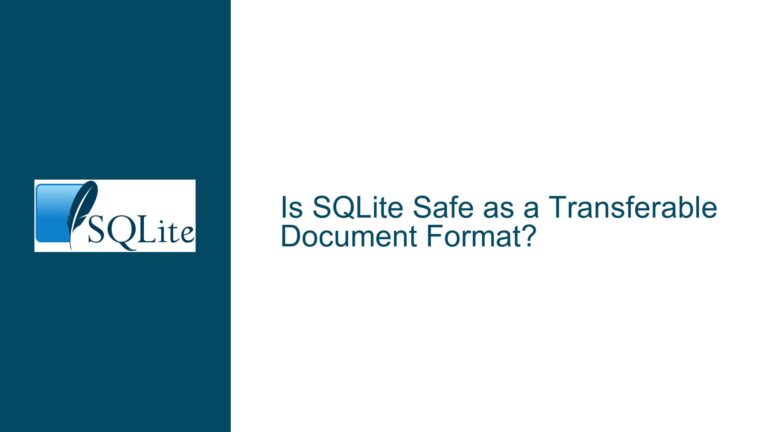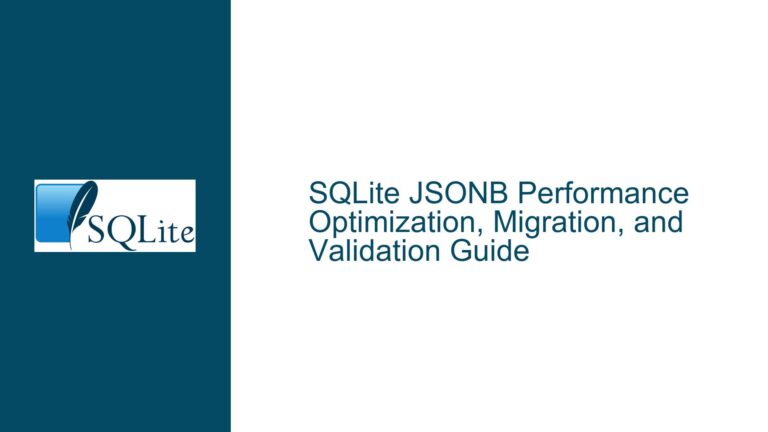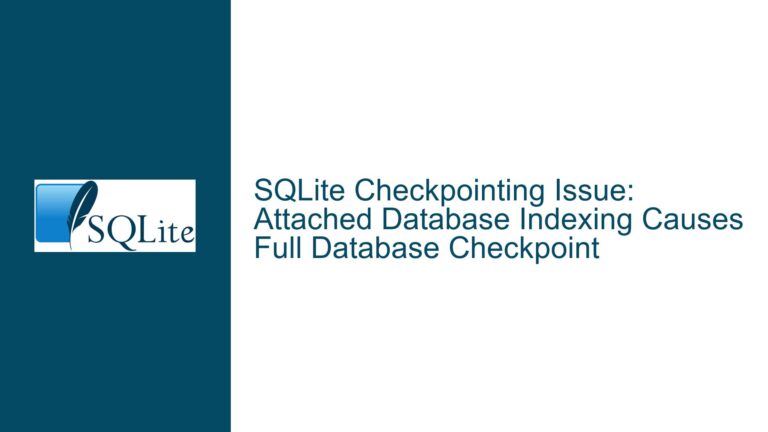Unsafe Use of load_extension() in SQLite Triggers: Security and Workarounds
Understanding the DIRECTONLY Restriction on load_extension()
The core issue revolves around the inability to use the load_extension() function within SQLite triggers due to its classification as a DIRECTONLY function. This restriction is a deliberate security measure implemented by SQLite to prevent potential exploits. The load_extension() function is designed to load external shared libraries into the SQLite environment, which can extend SQLite’s functionality. However, allowing this function to be invoked indirectly—such as through triggers, views, or subqueries—opens up significant security vulnerabilities.
The DIRECTONLY classification means that load_extension() can only be called directly from the application code, not through any secondary mechanisms. This restriction is enforced to mitigate the risk of an attacker injecting malicious code into the database schema. For example, an attacker could create a view or trigger that calls load_extension() to load a hostile shared library, thereby compromising the system. By limiting load_extension() to direct calls, SQLite ensures that only trusted application code can load extensions, reducing the attack surface.
The error message "unsafe use of load_extension()" is explicitly designed to alert developers to this restriction. It serves as a safeguard, preventing the inadvertent or malicious use of load_extension() in contexts where it could pose a security risk. Understanding this restriction is crucial for developers who wish to extend SQLite’s functionality while maintaining a secure environment.
Security Implications of Indirect load_extension() Calls
The security implications of allowing indirect calls to load_extension() are significant. SQLite’s design philosophy prioritizes safety and reliability, and the DIRECTONLY restriction on load_extension() is a direct reflection of this philosophy. To illustrate the potential risks, consider a scenario where an application queries a table named CONFIG to retrieve configuration values. An attacker could exploit this behavior by renaming the CONFIG table and replacing it with a malicious view that calls load_extension().
For example, the attacker could execute the following SQL statements:
ALTER TABLE config RENAME TO old_config;
CREATE VIEW config AS
SELECT * FROM old_config
WHERE EXISTS(SELECT load_extension('/tmp/hostile_extension.so'));
When the application queries the CONFIG table, the malicious view would load the hostile extension, potentially granting the attacker control over the system. This type of attack is known as a schema-based attack, where the attacker manipulates the database schema to execute arbitrary code.
The DIRECTONLY restriction on load_extension() prevents such attacks by ensuring that only direct calls from trusted application code can load extensions. This restriction is particularly important in multi-user environments or when dealing with untrusted database files. By enforcing this restriction, SQLite minimizes the risk of schema-based attacks and maintains a secure execution environment.
Workarounds for Loading Extensions Without Trigger Restrictions
While the DIRECTONLY restriction on load_extension() is a necessary security measure, it can be inconvenient for developers who need to load extensions in specific contexts, such as within triggers. Fortunately, there are workarounds that allow developers to achieve their goals without compromising security.
One approach is to use the sqlite3_enable_load_extension() function in the application code to enable extension loading for a specific database connection. This function must be called before attempting to load any extensions, and it ensures that extensions can only be loaded by trusted application code. For example:
sqlite3_enable_load_extension(db, 1);
sqlite3_load_extension(db, "example_extension.so", NULL, NULL);
This approach requires modifying the application code to explicitly enable and load extensions, which may not always be feasible.
Another workaround involves using a custom SQLite amalgamation. The SQLite amalgamation is a single C file that contains the entire SQLite library, and it can be customized to include additional initialization code. By defining the SQLITE_EXTRA_INIT macro, developers can specify a custom initialization function that is executed when the SQLite library is initialized. This function can register extension initialization functions using sqlite3_auto_extension(), ensuring that the extensions are automatically loaded for every database connection.
For example, the following code demonstrates how to use SQLITE_EXTRA_INIT to automatically load an extension:
#define SQLITE_EXTRA_INIT my_sqlite_extra_init
void my_sqlite_extra_init(void *arg) {
sqlite3_auto_extension((void*)example_extension_init);
}
This approach requires a solid understanding of C programming and the SQLite build process, but it provides a powerful mechanism for loading extensions without modifying application code.
In summary, while the DIRECTONLY restriction on load_extension() presents challenges, there are viable workarounds that allow developers to load extensions securely. By understanding the security implications and leveraging the available tools, developers can extend SQLite’s functionality while maintaining a robust security posture.

